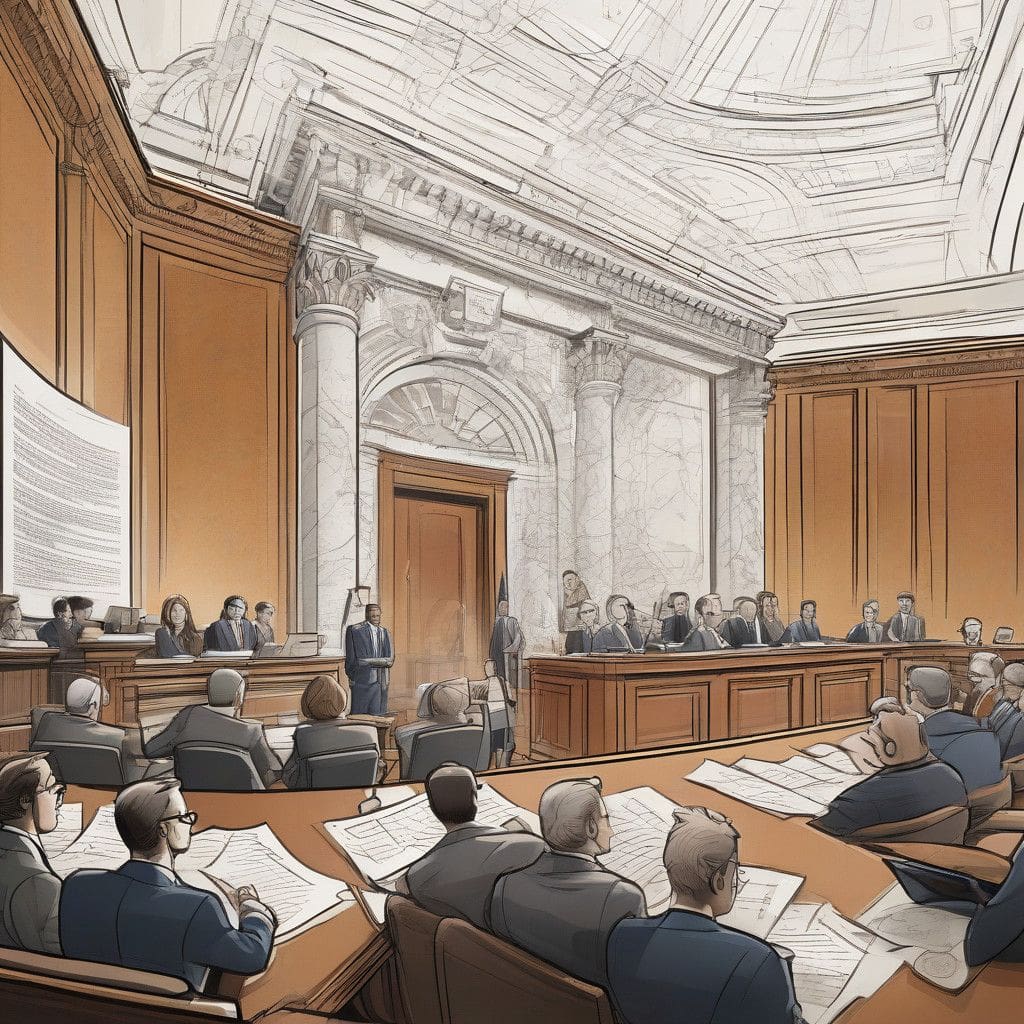The U.S. Supreme Court’s upcoming review of the Nvidia investor fraud lawsuit represents a pivotal moment for corporate accountability and the legal standards governing securities fraud cases. The semiconductor giant, renowned for its AI technology, has come under scrutiny after allegations from shareholders suggest the company misrepresented its reliance on cryptocurrency revenues, which many believe were integral to its financial performance in recent years.
The case traces back to a class-action lawsuit filed in 2018 by Swedish investment firm E. Ohman J:or Fonder AB. Shareholders contend that Nvidia executives downplayed the company’s substantial revenue generated from crypto mining activities—a sector significantly influenced by volatile fluctuations in cryptocurrency values. This perceived deception, they argue, inflated Nvidia’s stock price, only for it to dramatically decline when the cryptocurrency market cooled in late 2018.
Nvidia’s defense counters these allegations by asserting that the plaintiffs have failed to adhere to the stringent legal requirements outlined in the 1995 Private Securities Litigation Reform Act. This act necessitates clear evidence demonstrating intentional or reckless deception for securities fraud to hold. Despite Nvidia’s dismissal of the claims, the Ninth Circuit Court of Appeals revived the lawsuit after ruling that the plaintiffs had provided sufficient grounds suggesting CEO Jensen Huang might have knowingly or recklessly misrepresented the company’s crypto-related revenues.
The implications of this Supreme Court decision extend beyond Nvidia; this case, along with a concurrent review involving Meta Platforms regarding Facebook’s alleged fraudulent actions, could reshape the landscape of corporate accountability. The outcomes may significantly influence the bar for initiating securities fraud cases, particularly in terms of the evidence required to demonstrate fraudulent intent.
With the Biden administration expressing support for the shareholders in the Nvidia case, the upcoming rulings—anticipated by mid-2024—are poised to alter the ease with which private parties can pursue legal actions against corporations for alleged fraud. If the Court sides with Nvidia, it could set a precedent making it more challenging for investors to hold companies accountable for misleading statements.
A key element of this case revolves around the charge that Nvidia failed to fully disclose the dependency of its revenues on a high-risk sector like cryptocurrency mining. With the rise of digital currencies, many technology companies have engaged in various crypto-related business strategies, which raises questions about transparency and how these connections are communicated to investors.
For example, during the crypto boom, Nvidia’s graphics processing units (GPUs) became highly sought after for cryptocurrency mining, leading to increased revenue. However, once the market began to decline, investors were left reeling from the steep drop in stock value, illustrating the tangible repercussions of perceived corporate misrepresentation.
In the world of investing, trust and transparency are paramount. The Securities and Exchange Commission (SEC) emphasizes the importance of clear and accurate disclosures from public companies to protect investors. The Nvidia case will test the boundaries of these principles, potentially prompting other tech giants to reassess their reporting strategies. If Nvidia is found liable, other companies may face increased scrutiny regarding the disclosure of revenue sources linked to volatile markets.
Understanding the dynamics of a rapidly changing financial landscape, companies need to communicate risks associated with their business models transparently. A ruling in favor of shareholders could encourage deeper disclosures and more cautious financial projections, as companies strive to avoid the pitfalls of legal liability. Conversely, a ruling favoring Nvidia may reinforce the current lax standards for corporate disclosures, perpetuating a cycle where investors are left pleading for accountability.
The investment community is watching closely. This case could set a legal precedent that changes how companies interact with their investors and manage their public disclosures. As debates over transparency, risk disclosures, and corporate responsibility continue, the decisions made by the Supreme Court will resonate across various sectors, influencing not only investor trust but also shaping the operational frameworks of companies navigating a digital economy.
In conclusion, as the Supreme Court prepares to deliberate on the Nvidia case amid rising investor concerns, the outcome will likely reverberate throughout the financial and corporate landscape. Stakeholders should remain vigilant in observing not only the Court’s ruling but also its ramifications for future securities fraud litigation and corporate disclosure practices.












